Gap-dong: Episode 16
by javabeans
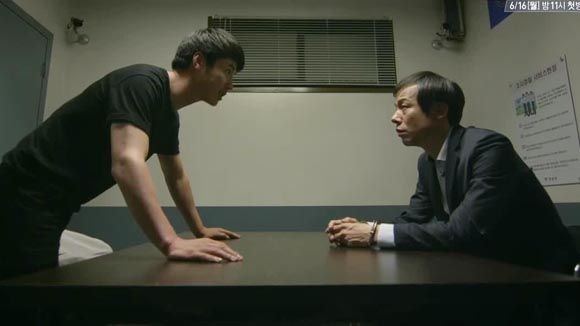
This show is taking the complete opposite approach of how I’d tell a serial killer story, but I suppose that doesn’t have to be a bad thing. It’s just that it’s kind of amazing how everybody and their mother (and father, even) knows who the culprit is at this point, and yet nobody can nail him to the wall. You’d think that identifying the slippery, long-dormant murderer would be the hard part, but as it turns out, that’s child’s play compared to the hard work of actually doing anything about it. So becomes less about crime and more about the process of prosecution, and all the ways that can go awry—certainly interesting stuff, just not what you were thinking you’d get. In that way it almost feels like you’re expecting a show about singing—you know, lots of Glee-style musical numbers—and instead get a show explaining music theory. On the upside, I continue to be impressed at finding the show engaging despite showing all its cards on the table before it even needs to.
SONG OF THE DAY
Joy o’clock – “잊혀지다” [ Download ]
Audio clip: Adobe Flash Player (version 9 or above) is required to play this audio clip. Download the latest version here. You also need to have JavaScript enabled in your browser.
EPISODE 16 RECAP
Mu-yeom hands over Chief Cha’s old copy of Crime and Punishment, and Cha looks blankly at it and says he has no need for it. Mu-yeom asks whether Chief Cha didn’t find his burden heavy, and Chief Cha agrees that it was. “Then let go of it,” Mu-yeom urges.
But Cha just says, “That’s why I threw it away.”
Tae-oh stares at the results of his mental evaluation, almost shaking in shock: He registers as perfectly regular. Was there ever anybody more devastated to read that he’s not abnormal? Tae-oh wonders if Maria wrote this evaluation to ensure he got the death penalty and says in a wild-eyed frenzy, “Who says I’m normal?! What about this is normal?!”
Mu-yeom’s sidekicks arrive to arrest Chief Cha, who protests that they’re mistaken and also without ground, given the expiration of the statute of limitations. But Mu-yeom states that there’s cause to act when someone is a menace to the public, and so Chief Cha gets slapped with cuffs and escorted to the station.
Now the higher-ups are left to hash out the legalities. The statute of limitations on capital crimes was extended from 15 years to 25, but those changes don’t apply retroactively, and so far they haven’t found grounds for suspending the statute in Chief Cha’s case. The prosecutor had proceeded anyway in hopes that an investigation would yield what they need, but now the clock is ticking. Chief Cha volunteered to remain in custody for 48 hours, and his easy compliance suggests that he knows how to evade the charges.
A DNA sample is taken to be matched with any unsolved cases in the database, and the police chief encourages his team to do everything they can to get the evidence they need. They have circumstantial evidence aplenty, but no hard link.
Mu-yeom has put together a theory about Cha’s motivation and refers to the note in his book wondering about the feasibility of a perfect crime. Cha argues that there’s nothing suspicious about that since it’s his job to prevent crimes, and asks why he would’ve donated that book if he’d been the killer.
Mu-yeom surprises him by knowing that Cha hadn’t donated the book directly; it had been turned in by cleaning staff. So Cha left the book behind in his departure from Iltan but didn’t think anything of it, since he hadn’t known of the letter inside.
Slapping down the photo of Gap-dong’s first victim, Mu-yeom asks what sparked the killing. Chief Cha had been the victim’s close friend in childhood, and even lived in the same house for a time. We see a teenage Cha in flashback, coming home to find the girl shaking in fear as they glimpse a horrific scene: her father holding a bloody hammer, with his mother collapsed on the floor, her hands tied together with a knotted cloth.
Mu-yeom asks what happened to that man, “because he would have been your first murder.” Chief Cha calls that man human garbage, but denies killing him: “I became an officer who catches trash like him.” Mu-yeom speculates that Cha killed the daughter because of her father’s deeds.
The cops get a potential break in the case—they were unable to get Cha on suspicion of fleeing the country because that stipulation requires a minimum number of days that he had to have been abroad. They hadn’t found records proving that minimum time had been met, but now they discover that he has a second passport issued by Malta under the name Steve Chan. If they can rack up more flights under the second name, they have hope. They get to work digging through records.
In interrogation, Chief Cha maintains calm and counters Mu-yeom’s claims with logical-sounding explanations: He had wanted to move abroad because the Gap-dong cases had shaken his beliefs, but decided against it. Mu-yeom asks why he used a signature mark on his victims, then, and Cha’s face turns pensive.
Mu-yeom discusses the case with Chul-gon, who recalls how he had gone to the first victim’s old house days before the second murder arose. Once it became clear they were dealing with a serial killer, however, he’d turned his attention to that. In retrospect Chief Cha must have known from their reaction to the second murder that he’d evaded suspicion on the first.
The persistent reporter returns to the station to join Ki-ri in the records room, and he half-jokingly accuses her of having ulterior motives for coming by so often, by which he means a crush on him. She admits to having motives and he lights up, pointing to himself hopefully, only to deflate at her reply that she’s related to one of the victims—her mother was Gap-dong’s sixth victim.
In light of the psych evaluation, Tae-oh dully tells Maria that he can’t trust her judgment anymore, looking like all the life has been sapped out of him. He says that he really doesn’t think Chief Cha is Gap-dong, because like recognizes like. She asks, “Do you really not know, or are pretending not to know?”
Tae-oh raises his complaint with her decreeing him normal, telling her that her own psychiatric condition is suspicious. Who is she to treat others when she should be getting treated herself? He rips up the form, calling her results invalid, and Maria seems affected by his words.
In his cell, Tae-oh thinks over his two choices: to take Chief Cha’s offer for freedom, or Maria’s proposal to work for them in catching Gap-dong.
Time’s ticking down and their first day is almost over. The team finds more flight records that put additional days on their total, but they’re still eight days short of the necessary number. Meanwhile, Chief Cha is giving nothing away, and argues that he’s not the culprit—why would he commit murder? Mu-yeom says he couldn’t believe it at first, because it seemed ridiculous to class him alongside Jack the Ripper and the like. But when he realized that the first victim and the letter-writer were acquainted, things started to come into focus.
Chief Cha goads him to share his theory, ready to laugh in his face. But the smile drops off his face when Mu-yeom supposes that he used the signature to avoid capture. Thus he killed the following victims to throw the scent off himself, giving the impression that the criminal was a psychopath serial killer. Well, he did become a serial killer in that he killed multiple times, but by framing it as more of an uncontrollable, crazed impulse, he could use one murder to cover up another.
Mu-yeom deduces that Cha’s real psychopathic urges were stirred as a result, with the populace in a frenzy and the media all over the story, even assigning him the Gap-dong name. Thus Cha was in search of the perfect way to commit a crime and evade the punishment, and had almost succeeded. “But you’re here, caught,” Mu-yeom says. “You’re going to lose everything. How about killing one more and going to prison?”
He hands over a set of nunchaku and encourages Chief Cha to use it on him, just goading him to let loose. Cha clenches them in his hand for a second, but shoves them away and says that the joke has gone too far.
Chul-gon vents his frustration at the limited time they have left, and Profiler Han decides, “I’ll take him with me. I’ll drag him to prison.”
Tae-oh requests a visit from Ji-wool, who goes to prison to see him but only has scorn to heap on his head. She’s also in no mood to humor his whims and gets up to leave right away, only today Tae-oh pleads a bit desperately with her: “Teach me—teach me how to feel like you do. If you teach me, I might be able to change.”
Ji-wool tells him to ask Maria to do that, but he entreats, “But you wanted to believe in me. You might be the one person—not even my mother believes in me.” He asks for this act of noblesse oblige, although in this scenario she’s the rich one (in compassion) who would dole out charity to the poor.
Ji-wool isn’t unmoved, but she fights her urge to give in and tells him to leave her alone. She leaves the prison, though gets called back to see Maria, who tells her of their Gap-dong discovery. Ji-wool can’t believe her friendly neighbor could be the culprit, but Maria’s seriousness makes her think twice, and she recalls telling Chief Cha of her webtoon. Maria urges her to be careful and is informing her because Cha may be released soon, putting her in danger.
Ji-wool starts to tear up, asking why everyone is shaking her up when she just wants to believe in people. She explains meeting Tae-oh earlier and being asked for her help. Maria reacts angrily, especially when she hears that Tae-oh has requested a re-evaluation, and confronts him about being up to something. Is he intending to use Ji-wool in his defense case?
Maria orders him to stay away from Ji-wool, but he just teases her for acting jealous: “You can have Detective Ha, and I’ll take Ji-wool, okay?” Maria spits fire at him, saying that the moment he messes with her, “That’s when you die by my hand.”
Tae-oh wonders at her vehemence, considering that she didn’t seem to be close friends with Ji-wool, and then puts the pieces together—is she seeing her dead friend in Ji-wool? An interesting discovery, and he smiles.
Maria gets her turn in the interrogation room with mere hours remaining on the clock. She talks to him in derisive banmal, addressing him as Gap-dong and asking why he bothered with rock-scissors-paper when its results were pointless. And why did he repeat Gap-dong’s words to her, asking “Did it feel good to win?” Chief Cha feigns ignorance throughout, acting like the befuddled innocent man and telling her she’s overreacting. When she points out that it’s odd for an innocent man to take these accusations so peacefully, he just says that he understands that she and Mu-yeom are victims of Gap-dong and he’s trying his hardest to be understanding.
Maria grows increasingly upset as she asks why he let her live, knowing who she was, screaming, “Why?!”
He turns that around on her, saying that yes, if he were really Gap-dong, he would have been able to track her down and get rid of her. He would have had the opportunity, so why did he not do anything? He offers his hands for her to feel, since she’d stated how soft they’d been, and Maria hesitantly reaches out to place her hands in his.
Maria puts her shaking hands into his and feels, and as she looks into his eyes, he looks back at her with an eerie grin. He whispers, “How did you win that game of rock-scissors-paper?” Maria drops his hands and lunges for his throat, and at that Mu-yeom bursts into the room to drag her away.
Maria is completely devastated and sobbing as Mu-yeom leads her out of the room, and she wails, “Why didn’t you fake the case and catch him that way? Look at him, he’s a beast with no heart.” She cries at the injustice of this arbitrarily designated time, and how they have to give up at the end of it.
Mu-yeom tells her he’s just begun, assuring her that they have plenty of time. Calling her Jae-he, he urges her to think of “our time” instead of the one designated by the law.
The team gathers for a briefing with one hour left on the clock. They came up short on the flights abroad, and Cha’s DNA didn’t match any other crimes in the database. Ki-ri growls that Cha had it all planned from the start, knowing he would walk away free.
Meanwhile, Chief Cha flashes back to the night of that very first murder, on Christmas Eve. He’d met the victim in a cafe for the first time in a long while, and she’d looked at him with a face that is far from friendly. Angry? Upset?
Reviewing the tape of Cha waiting out the clock in the interrogation room, something strikes Mu-yeom as particularly infuriating, and he barges in to demand how Cha could not once look at the clock. Normal people would look at the clock, worrying that something will turn up. Cha replies that he can gauge the time by Mu-yeom’s expression, and then Mu-yeom is called for an emergency meeting called by Profiler Han.
That’s when Profiler Han cops to being the fourth case’s Gap-dong. Again we’re using the terminology pretty loosely, as he explains that two sources of DNA were found in that case, and one of them came from him—the saliva on the milk carton found at the scene. The other officers protest but he asks the reporter to make this news public.
Mu-yeom understands that he’s trying to buy more time for them to find the necessary evidence to suspend the statute of limitations (and it’s something he understands, having done it himself in an earlier episode). Profiler Han says that for justice he can make this kind of sacrifice, though he perks up when Mu-yeom says it’s unnecessary because he has his own plan in motion.
He thinks back to a conversation with Maria when she’d worried over his health report, and we see that the prognosis is dire indeed—the hallucinations will increase in frequency and he will be unable to continue working. But he doesn’t say any of this to Profiler Han, just telling him to trust him. Profiler Han asks whether he means to sacrifice himself, and Mu-yeom scoffs that he’d never do that, which I’m pretty sure means that’s exactly what he intends. Noooo.
Chul-gon and Ki-ri drop by the district attorney’s office as he and the prosecutor are lamenting their legal conundrum. They’re here to inform them of Profiler Han’s plan to sacrifice himself (even though there’s proof that the sexual molestation charge was falsified).
And so, the news goes out that Profiler Han has admitted to an accomplice, which extends the timeframe for investigation. It’s devastating to his family, who worry that he may get accused for good. The monk assures them that the truth will come out and the situation will right itself, but the women aren’t consoled.
Tae-oh undergoes evaluations and breezes through the easy tasks of drawing simple diagrams and repeating phrases. The first aberration occurs when he’s asked to repeat three words, and he misses one, saying the word “person” instead of “dog.” Then as he’s writing down a sentence dictated to him (“The weather today is quite nice”), his mind flashes to his reaction in the chicken race and he scribbles “bullshit” at the end of it. Angry all of a sudden, he throws a container of pens and goes for the coffee table next, though he’s stopped by guards.
The psychiatrist running the tests asks Maria for her opinion, and she says that Tae-oh is quite skilled at putting on a show.
The clock winds down to zero. The 48 hours are up, and Maria sends Mu-yeom a text apologizing for losing her composure. Chief Cha says he’s disappointed in Mu-yeom, who returns those words to him. Cha adds that he found Mu-yeom’s theory quite impressive about the signature being used to evade capture. Is that an admission? A taunt?
Maria visits Tae-oh’s cell that night, having heard his new diagnosis: affective disorder. She tells him that if he was going to put on a show, he should have gone all out and convinced her as well. Then she reaches through the bars and yanks his head close to whisper in his ear, “Shall I tell you how to evade the death penalty? Rip out your hero’s throat.”
She asks if he’s going to be a mere copycat forever, saying that to become a hero, he’s gotta get rid of his hero first. Not a bad way to get into the mind of a psychopath, and Tae-oh’s face widens into a sly grin. “What will you do for me then?” he asks.
“I could have you released, or sent to the scaffold,” she says. “Give it a proper start, hunting dog.”
Chief Cha is allowed out, although by now his entire team looks at him with angry, distrustful eyes. Mu-yeom tells them not to be too disappointed, vowing to get Cha soon enough.
But just as the detectives are choking down their disappointment, the district attorney and prosecutor arrive with last-minute news: The statute of limitations has been suspended. They’ve succeeded. The station rejoices, and Mu-yeom makes sure Cha understands: “You should have done a better job wrapping things up,” he says. “In both the statute and the ninth incident, you’ve failed.”
COMMENTS
It wasn’t until I was done with the episode and looking over the photos from this hour that I realized how much of it was conducted in a simple interrogation room between two characters just talking. I’m taking it as a good sign that I didn’t notice at the moment how static the action was in this episode, with our bad guy literally just sitting in the same chair for most of it, being enigmatic and smirky as usual.
I do like the mini-twist of explaining the serial nature of the murders as a deflection tactic, as Gap-dong’s way of escaping suspicion. Given that we aren’t arguing culpability at this point—Chief Cha is Gap-dong, no question about it—the only way for them to surprise us is to introduce the unexpected in his motivation and circumstances, and it’s an interesting angle to argue that he isn’t that wild-eyed psychopath. That also supports the reasoning for how he was able to go underground for so long, if he wasn’t battling some kind of innate desire to kill.
I do think that logic starts to unravel when you look at it too closely, because it’s completely backward to commit eight murders as a way to escape committing one. I mean, what kind of stupid reasoning is that? I don’t even see how that’s so-convoluted-it’s-genius; it’s just dumb. I could be persuaded to find a second or even third murder to be an attempt to distract from the real motive, but eight murders, come on.
But let’s say I accepted that reasoning for whatever reason. You also have the added complication of Chief Cha then becoming the bloodlusty psychopath because he … realized he liked killing, I guess? That’s convenient. So now I’m confused as to how these motivations fit together. Maybe the show will smooth out those wrinkles in the coming episodes; I can hope.
More than Chief Cha, though, I find myself more interested in Tae-oh’s continuing existential crisis, because it’s always more interesting to watch somebody struggle with himself rather than smugly know all the answers. I like that the idea of working with Mu-yeom seemed to intrigue him, but that he wasn’t ready to jump onboard and was equally persuadable to the dark side when Chief Cha offered him a tantalizing taste of freedom. And for somebody who’s such an expert in manipulating others to his will, Tae-oh finds himself being equally manipulated by both sides.
That’s why I enjoyed Maria’s proposition at the end, because now she’s finally talking his language. You can’t appeal to his better side because he doesn’t have one, and you can’t ask him to do anything selflessly, because that doesn’t compute for him. So she has to give him a twisted rationale to appeal to that part of him that is simultaneously dark and intensely curious. His curiosity strikes me as almost childlike in instances, in the way that he’s not so concerned with what society thinks of a scenario but with why things happen the way they do. Why is the sky blue? Why does gravity make things fall to the ground? Why is killing a person bad? Okay, so he isn’t the most innocent child in the world—maybe like a baby devil, before he figures out what he’s gonna do with his evil powers, just poking at the world around him to test its reactions. Poke, poke.
RELATED POSTS
- Gap-dong: Episode 15
- Gap-dong: Episode 14
- Gap-dong: Episode 13
- Gap-dong: Episode 12
- Gap-dong: Episode 11
- Gap-dong: Episode 10
- Gap-dong: Episode 9
- Gap-dong: Episode 8
- Gap-dong: Episode 7
- Gap-dong: Episode 6
- Gap-dong: Episode 5
- Gap-dong: Episode 4
- Gap-dong: Episode 3
- Gap-dong: Episode 2
- Gap-dong: Episode 1
Tags: featured, Gap-dong, Kim Ji-won, Kim Min-jung, Lee Joon, Sung Dong-il, Yoon Sang-hyun
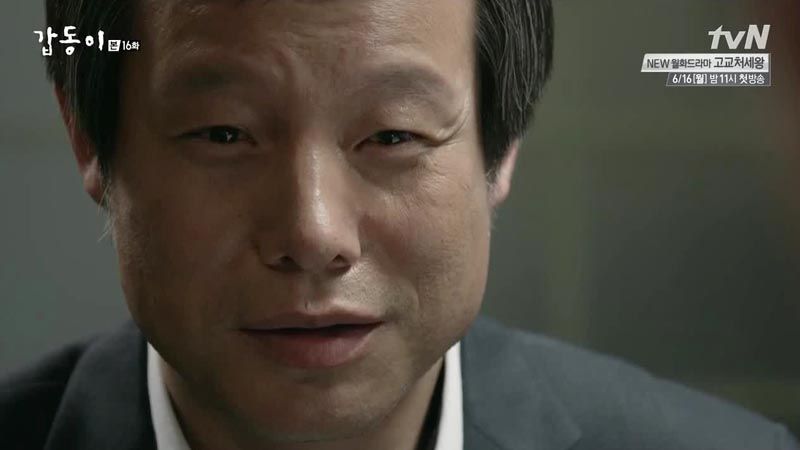

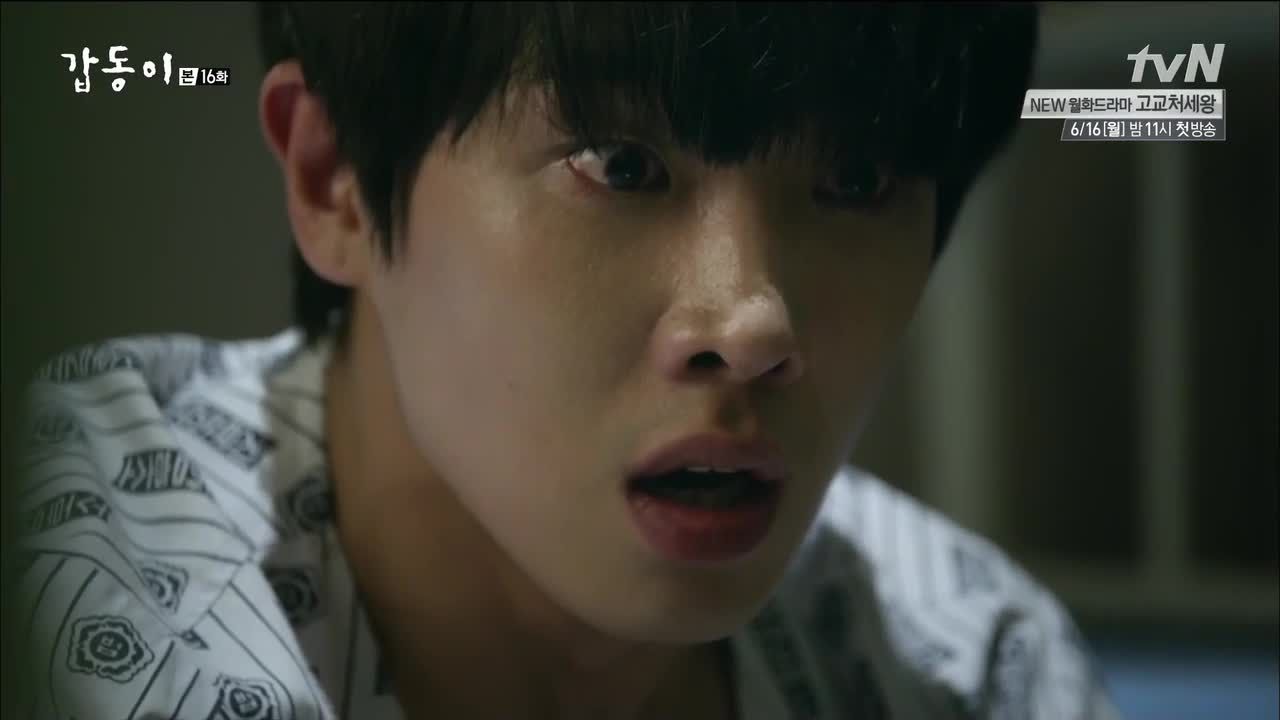
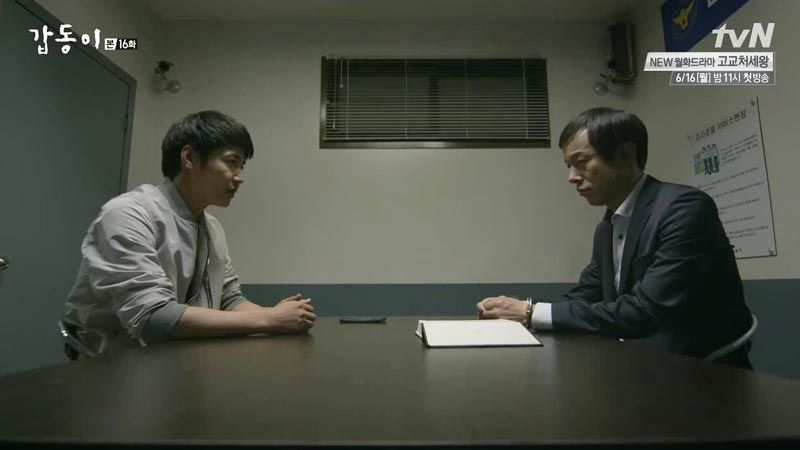
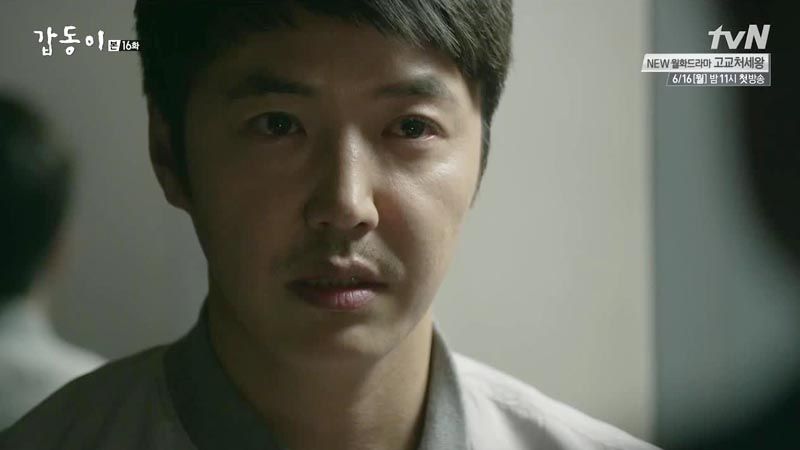

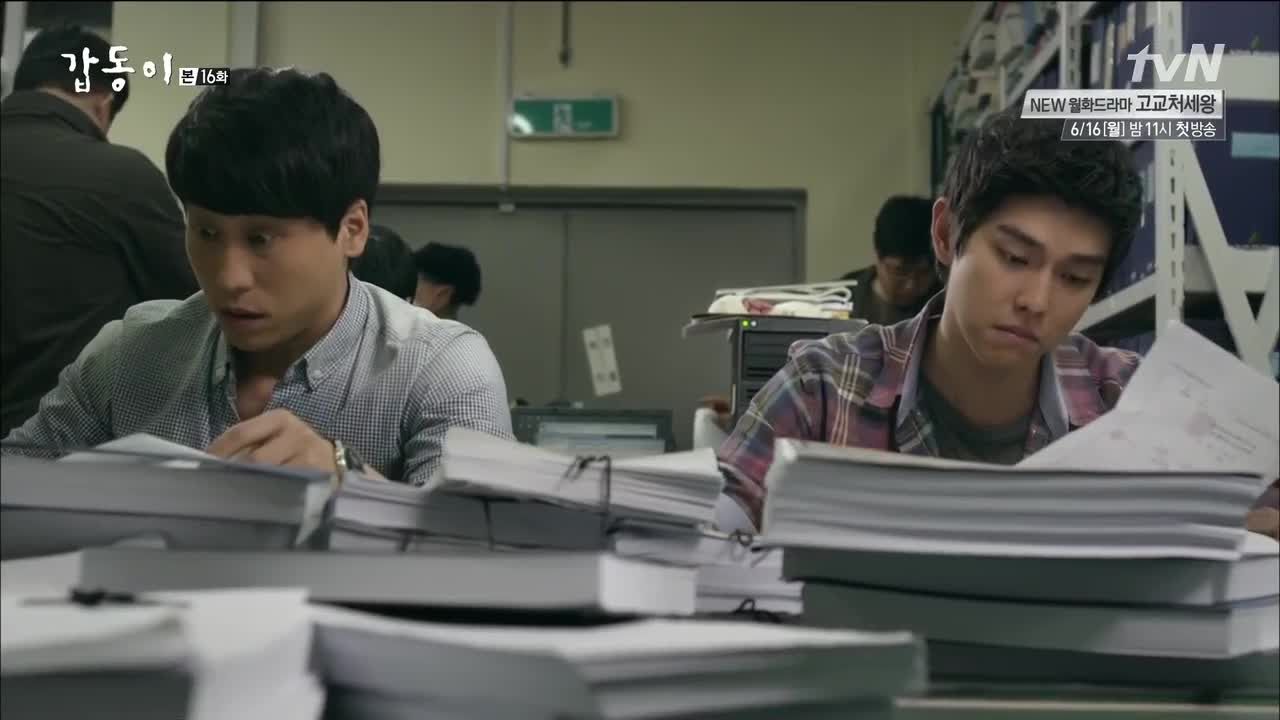



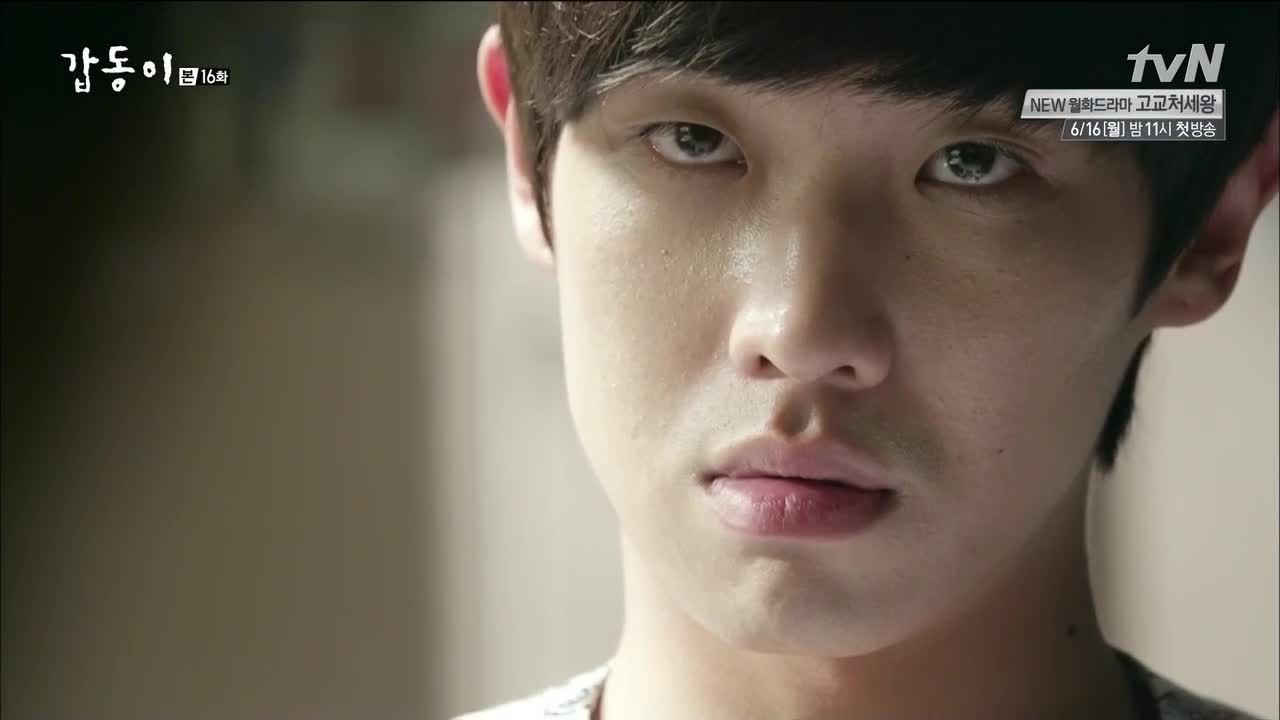
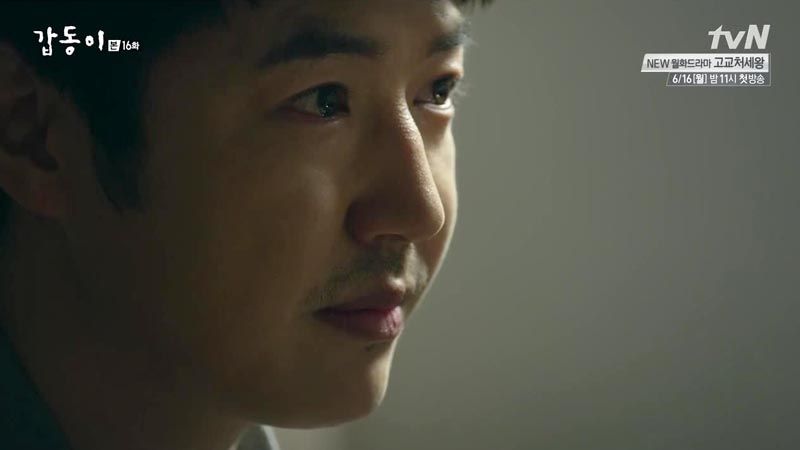
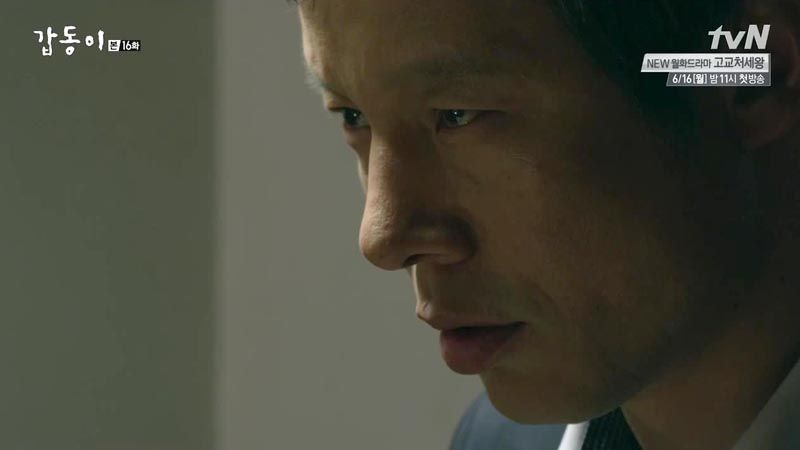


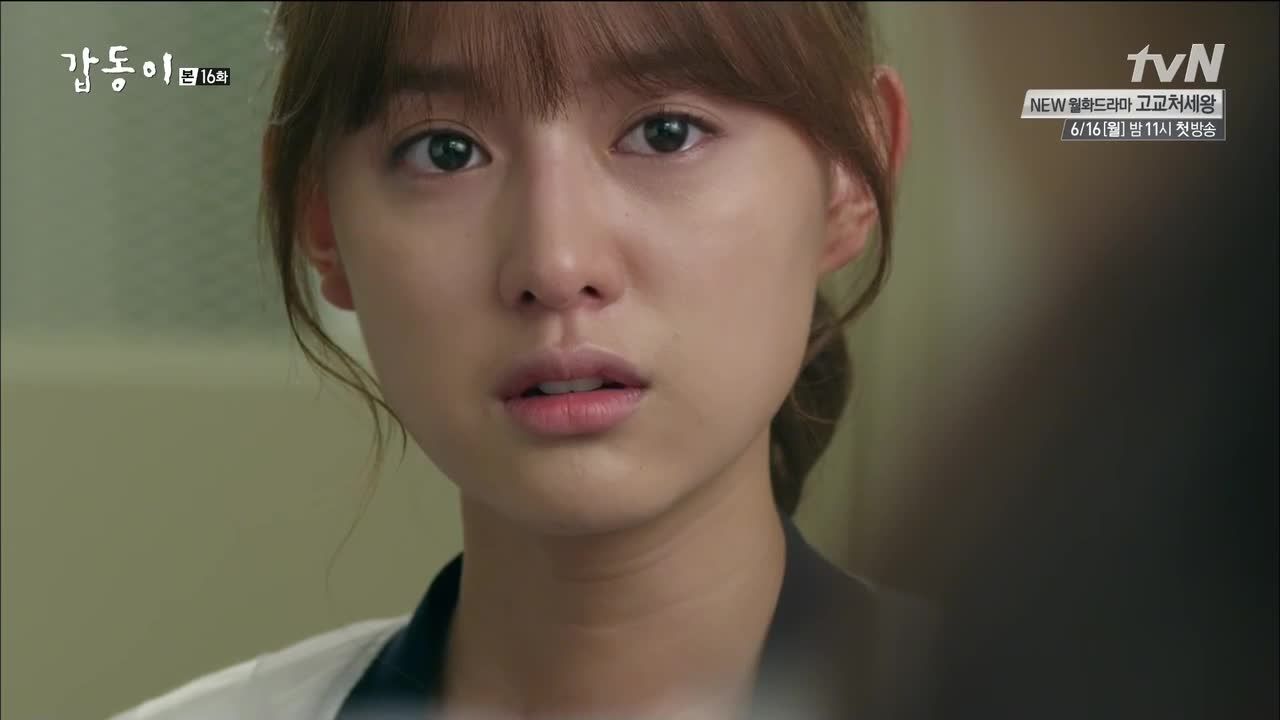
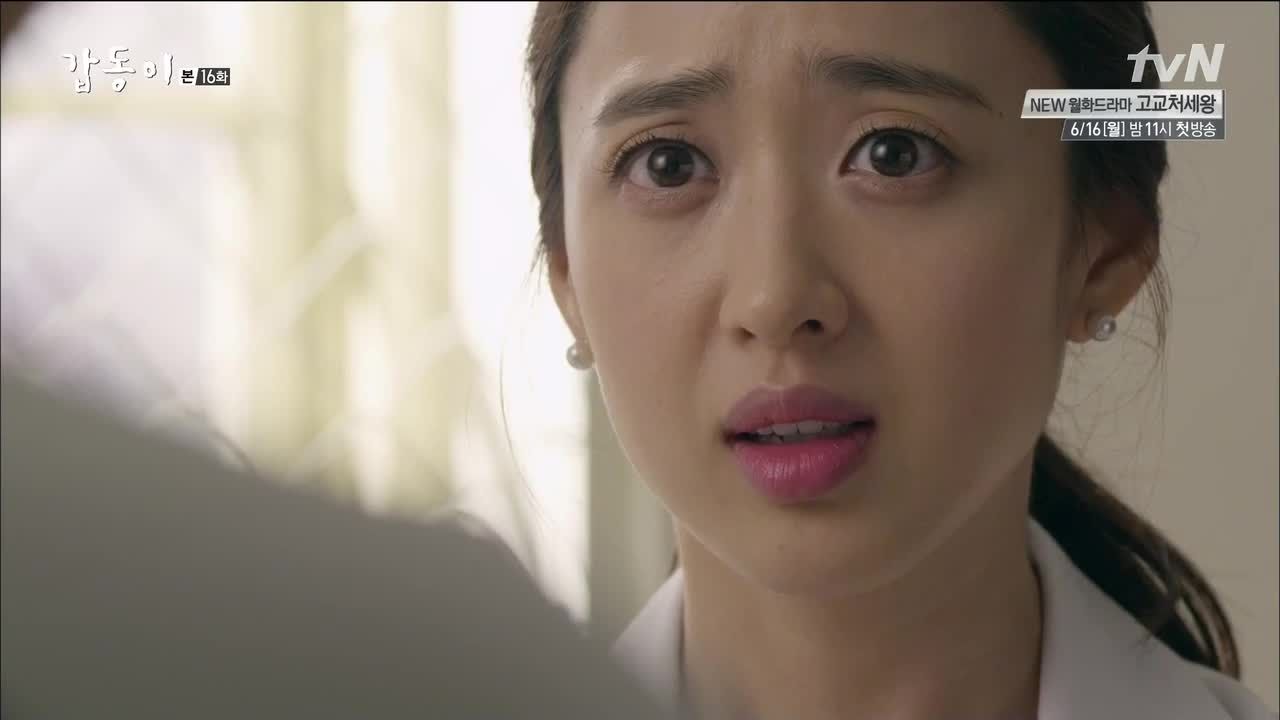
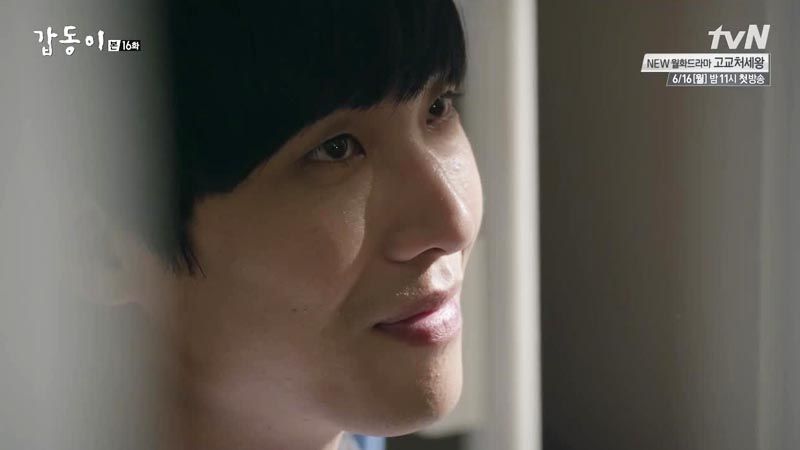
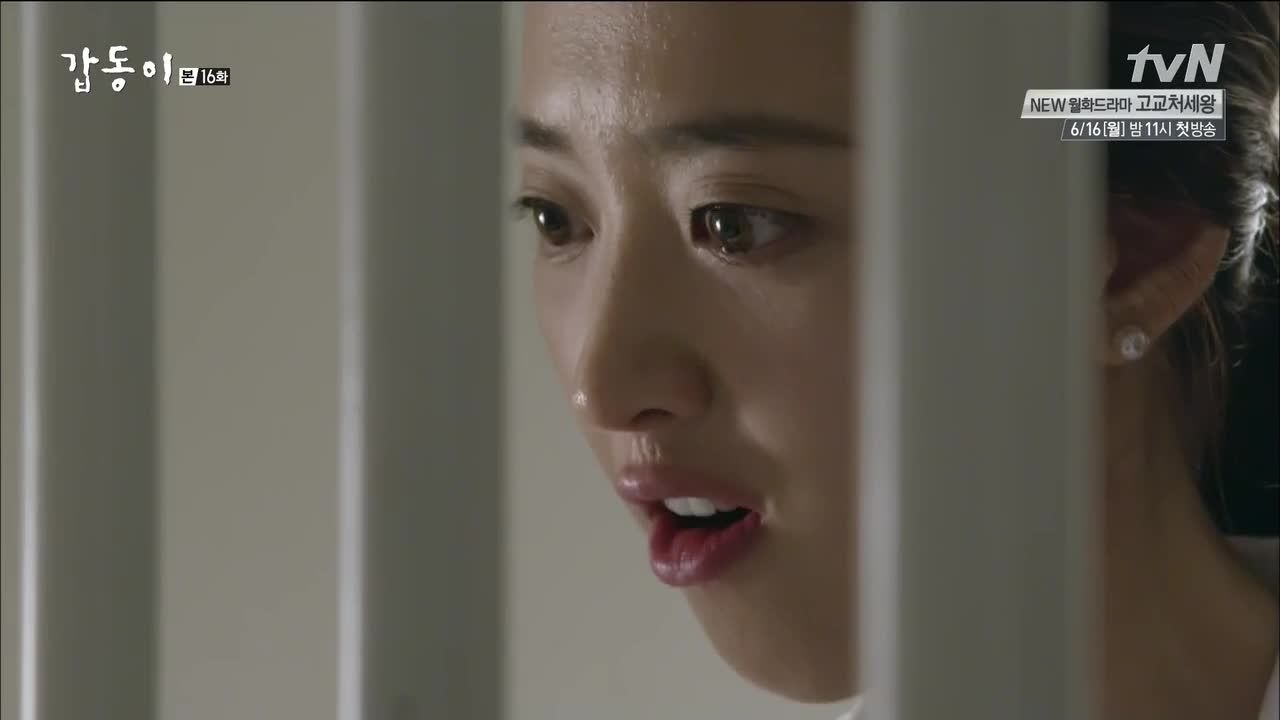
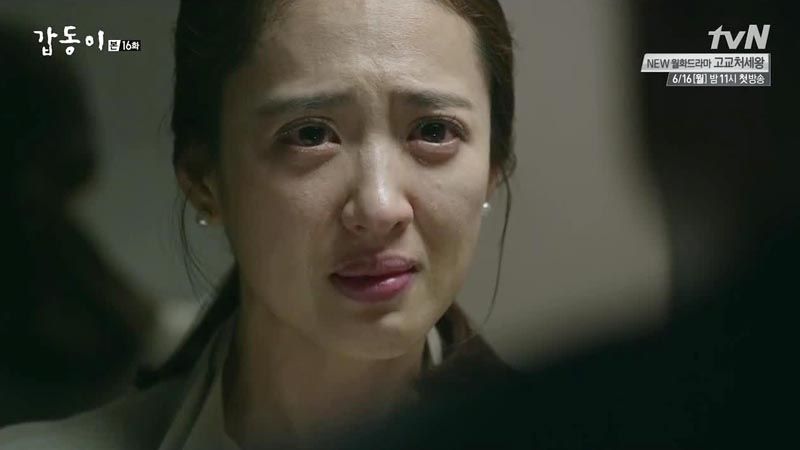
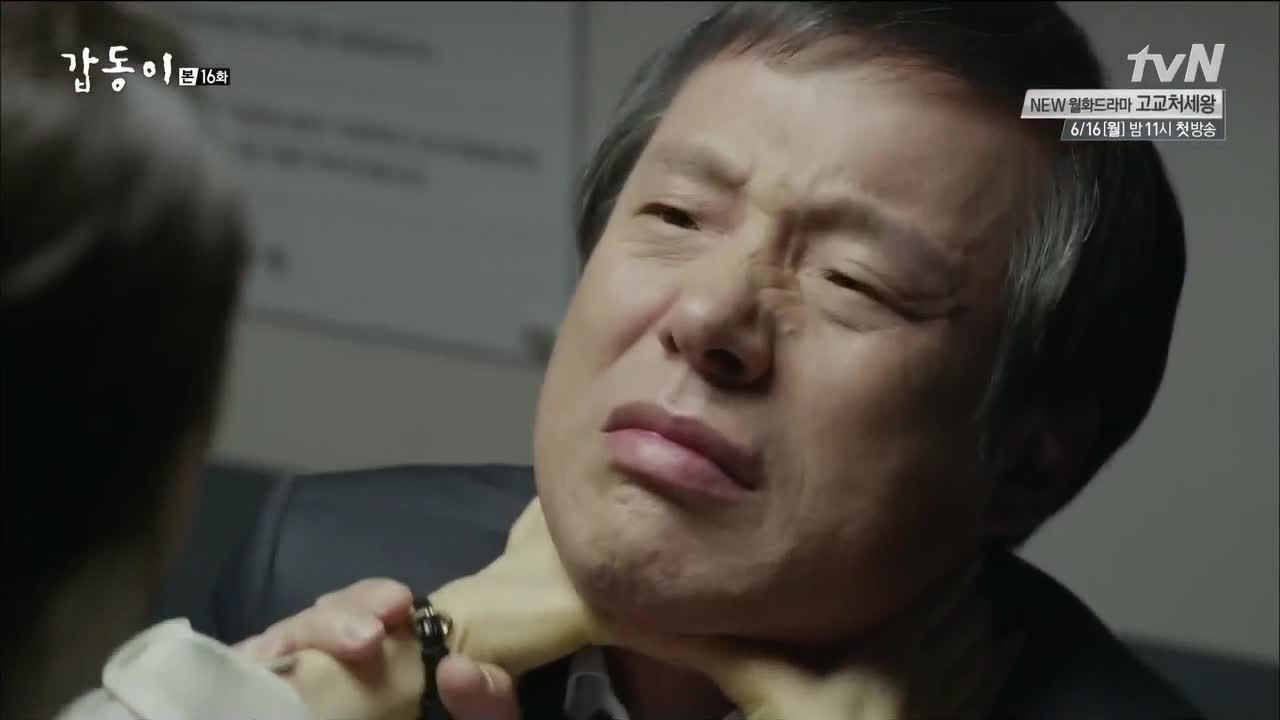
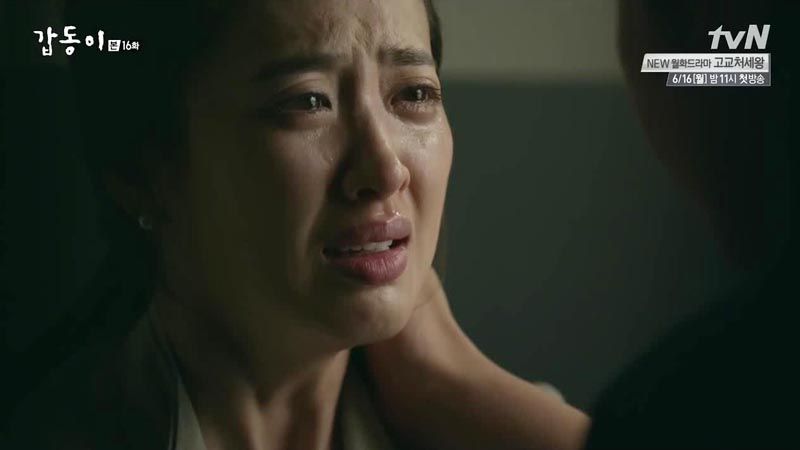
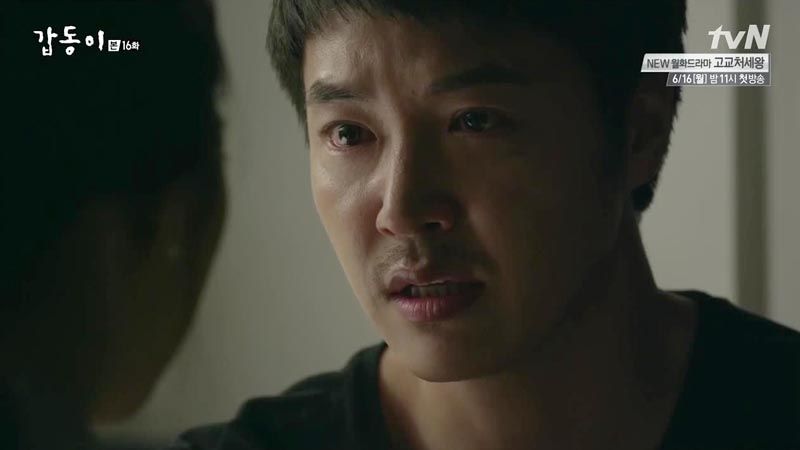
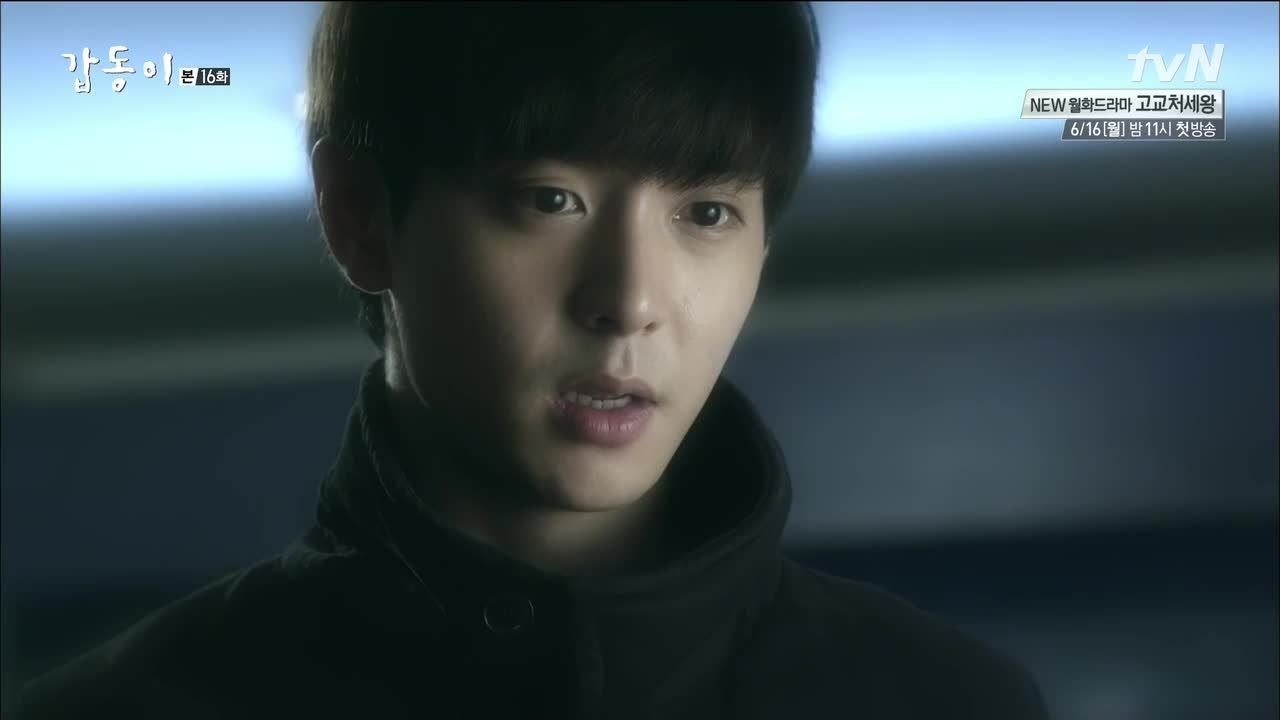
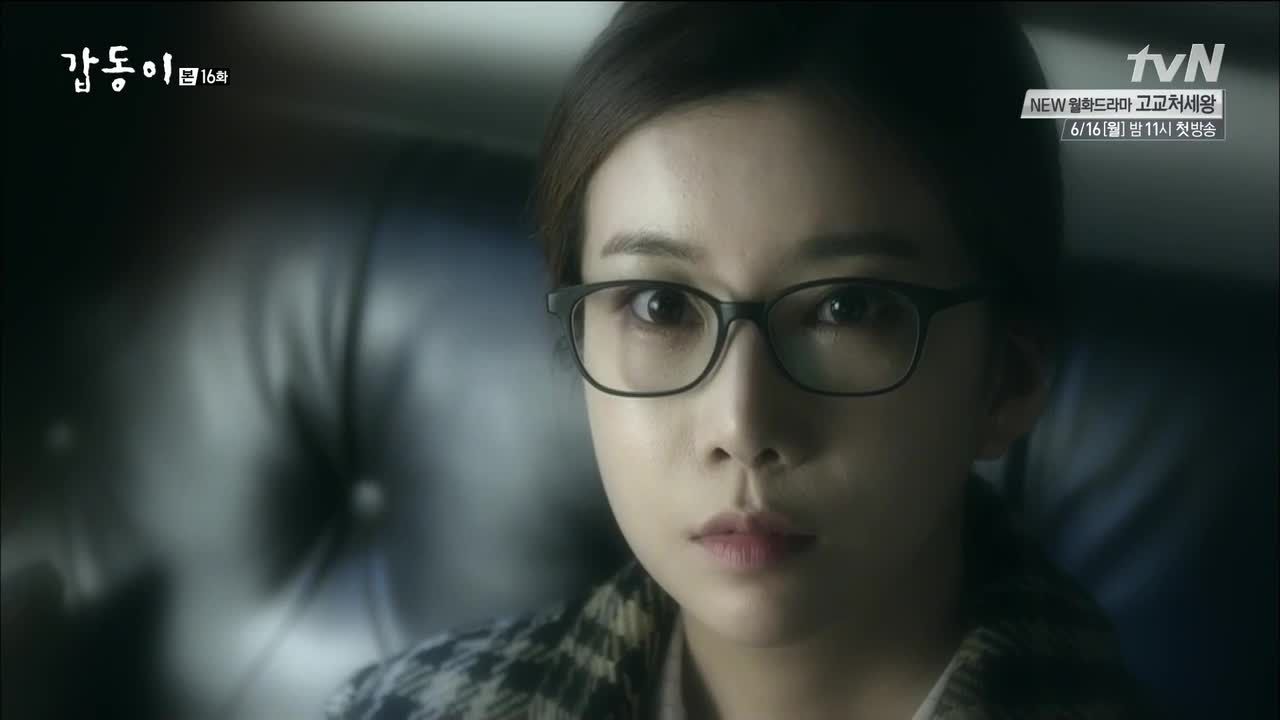

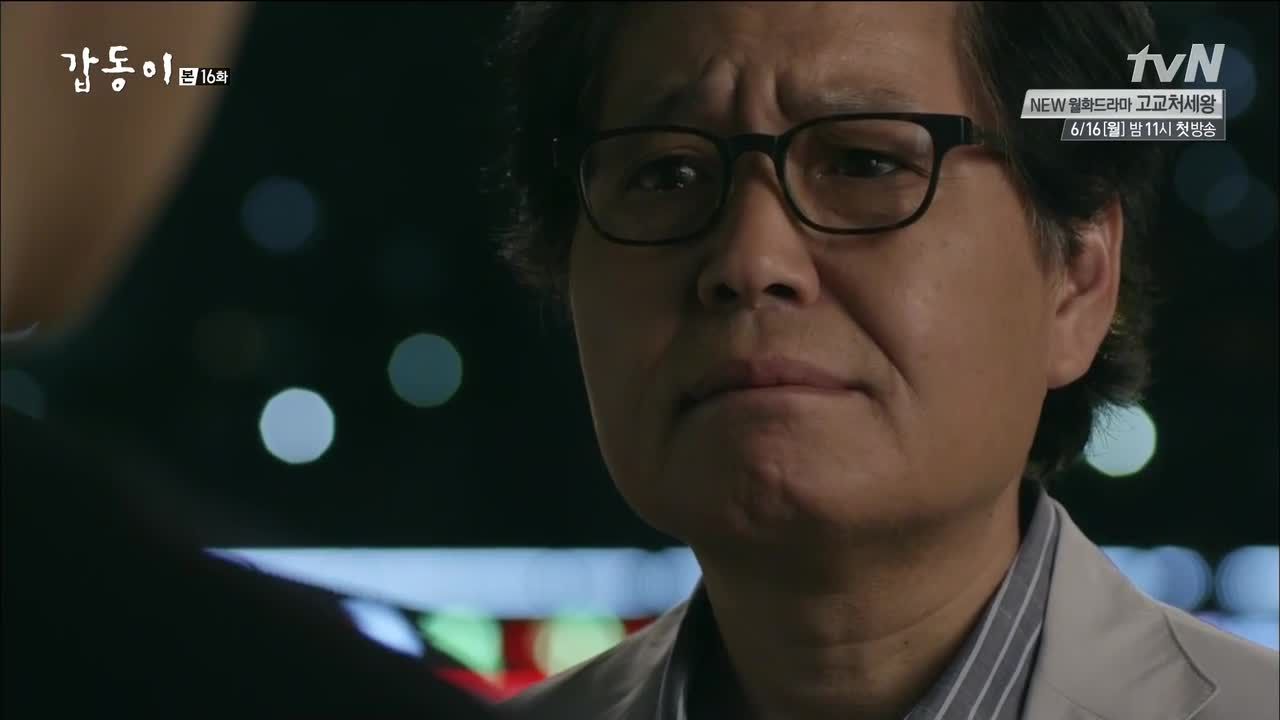
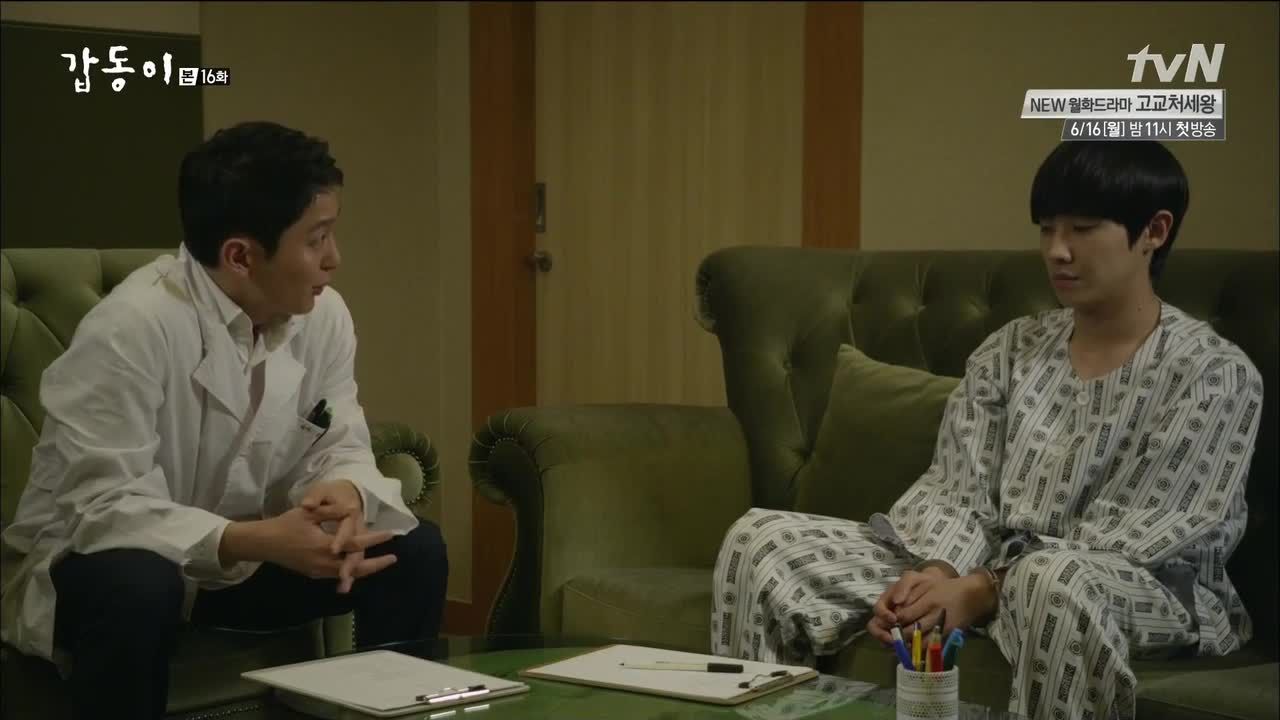
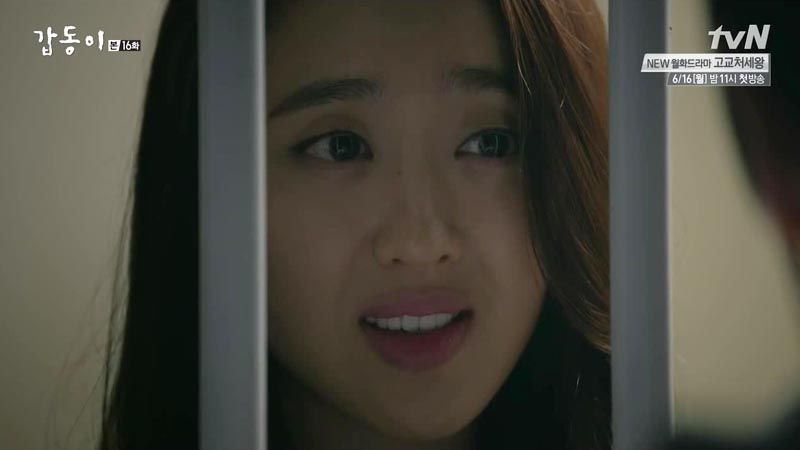
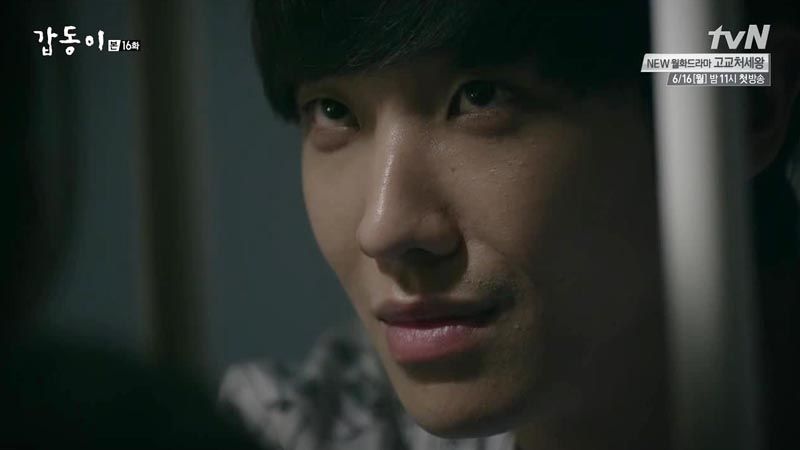
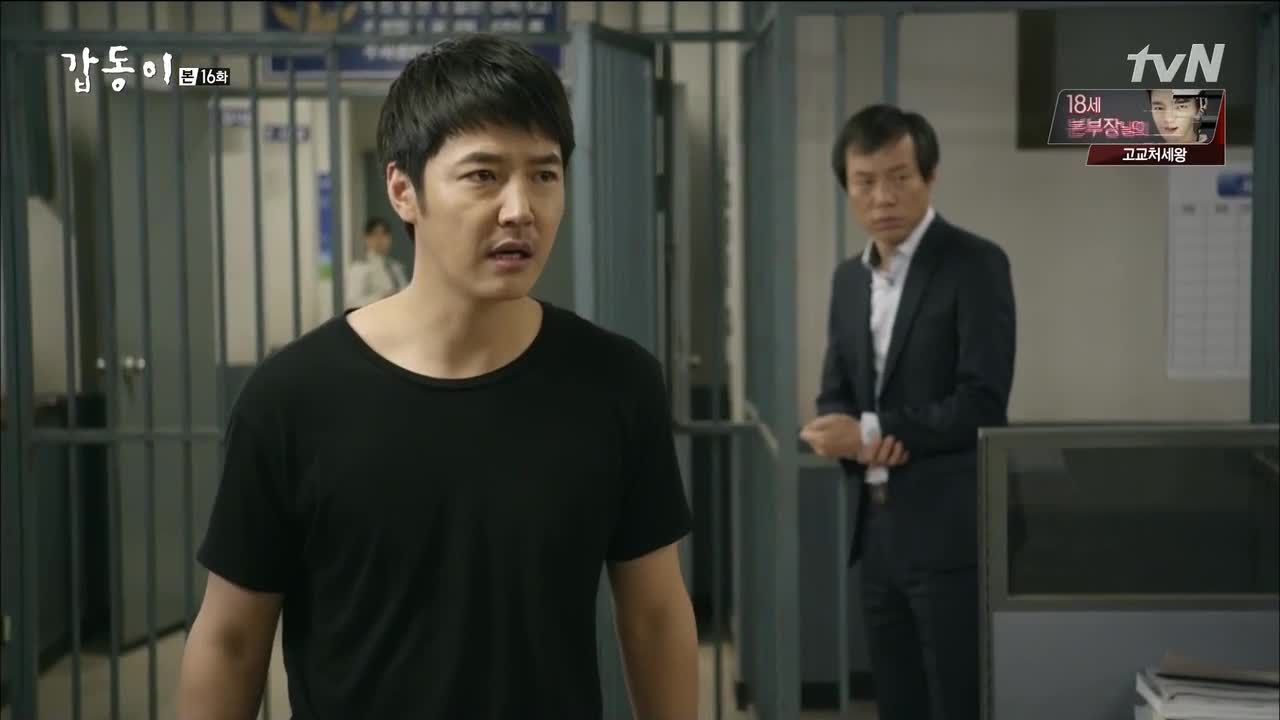
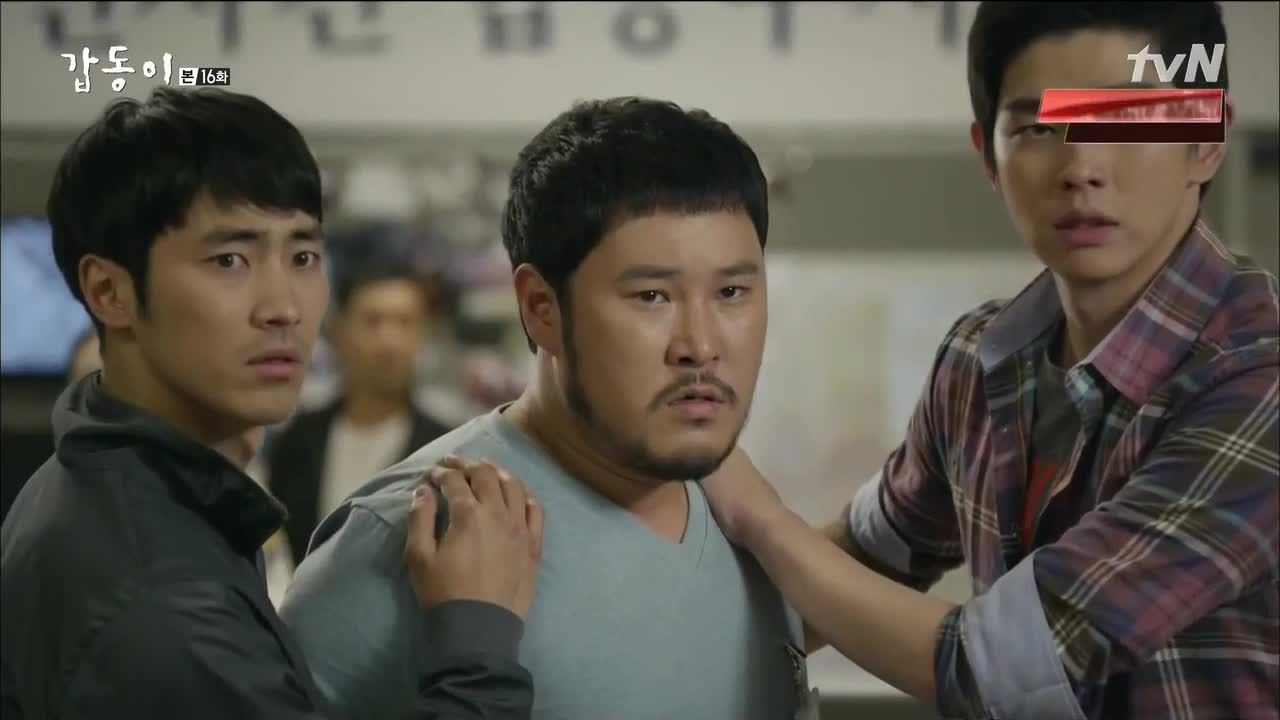
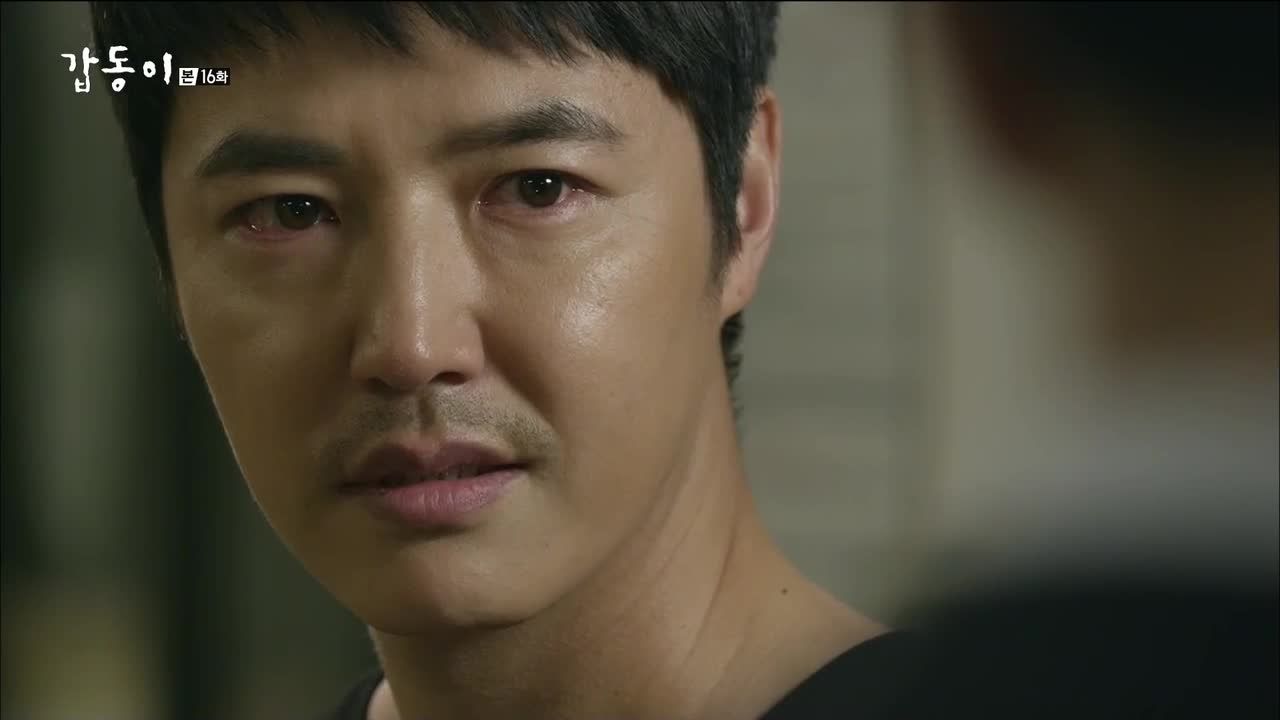
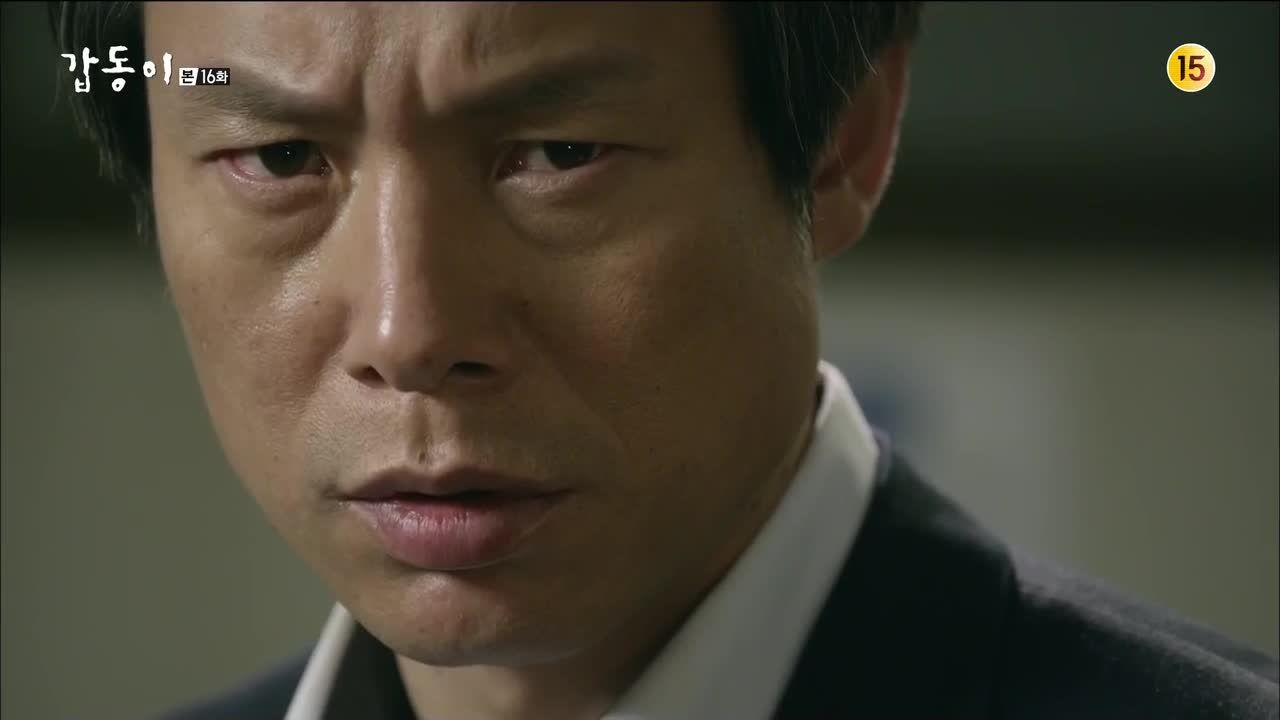
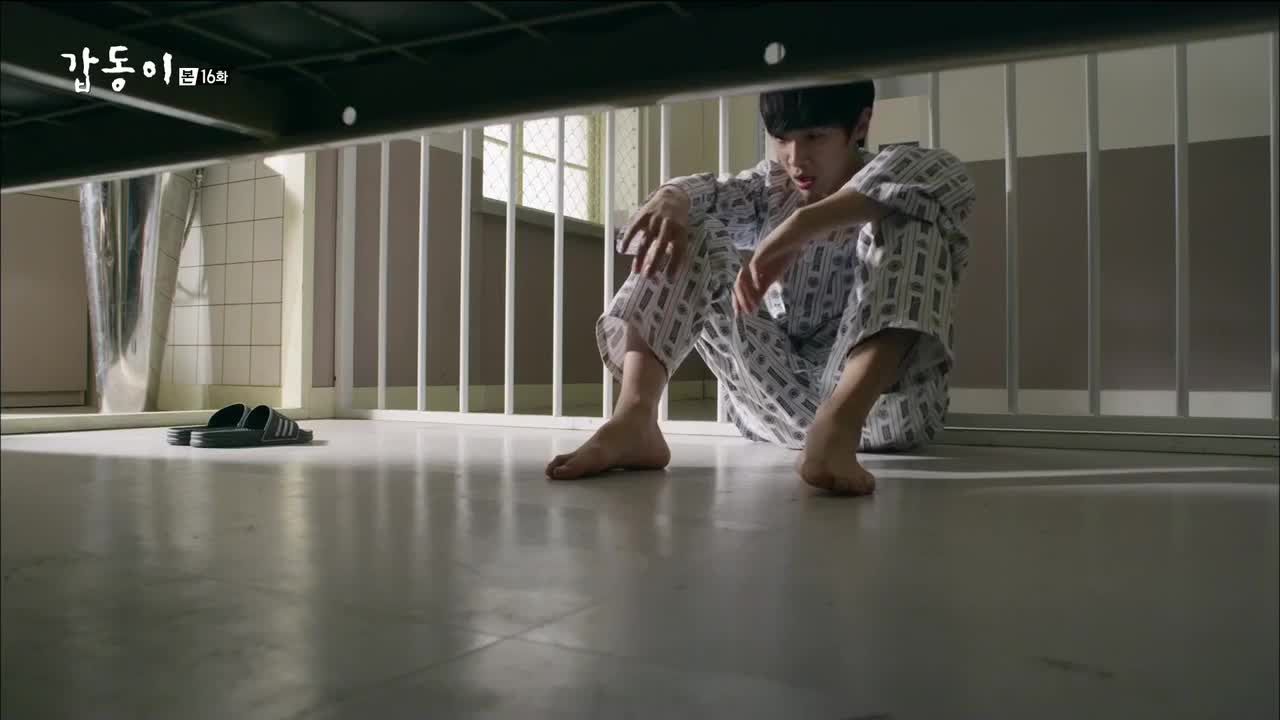
![[2024 Year in Review] Bean of Squee](https://d263ao8qih4miy.cloudfront.net/wp-content/uploads/2023/11/beanofsquee.png)
![[K-Movie Night] A Year-End Medley](https://d263ao8qih4miy.cloudfront.net/wp-content/uploads/2024/12/YearEndMedley_1-scaled.jpg)

![[2024 Year in review] Actors bringing their A-game](https://d263ao8qih4miy.cloudfront.net/wp-content/uploads/2024/11/Jeongnyeon1112-00182.jpg)


![[2024 Year in Review] Beanie Awards](https://d263ao8qih4miy.cloudfront.net/wp-content/uploads/2024/12/beanieawards_2024.jpg)



Required fields are marked *
Your email address will not be published. Required fields are marked *
1 MO
June 7, 2014 at 11:54 PM
Crazy yet still interesting. It didn't let my hope all out.
Required fields are marked *
2 diba
June 8, 2014 at 12:09 AM
Thank you so much!
It's amazing how the story is still interesting without having to discover Gap Dong is anymore. I guess since it's named as Gapdong, it's not just about finding out who he is, but also why and how he's gonna captured. Absolutely brilliant in my eyes. And your last paragraph on Tae Oh is so pinpoint. He doesn't care much about people or the world but he's always soooo curious. Poke poke :')
Required fields are marked *
3 daktari34
June 8, 2014 at 1:09 AM
Haven't watched this yet but how does it compare to the Hannibal series which I love? Well done (pun absolutely intended) dark psychological thrillers usually keep me glued to the seat.
Required fields are marked *
4 nobi
June 8, 2014 at 1:12 AM
thanks for the recaps :-)
i keep refreshing the button to know whether the new recap has uploaded or not...
i found the storyline is fresh and intriguing...
or maybe because i'm studying psychology so made it more fascinating for me XD
hope it unfold the whole story in the satisfying way....
Required fields are marked *
5 CaroleMcDonnell
June 8, 2014 at 3:50 AM
Thanks so much for the recap!
Omo! This drama is sooooo good!!!!!
This is one of those rare dramas where the plotting is so organic, so intent on being psychologically true to characters, plot growth, and situation - I am looooooooooooving it! And the subtexts of each episode --this one being "normal" (and even the use of the "choice" subtext) shows that the organic storytelling is nicely-balanced with conscious thematic explorations. And the other subtext of "dog" or "human" or "both." Really loving this writer.
Ah, Tae-Oh, you're not a psycopath...you're just a normal evil rich kib. Wow, this writer is so good! We were taken through a journey where we pitied our serial copycat...and now the other journey.
I gotta say that Dr Han's sacrifice is somehow fitting. This man basically taught Loser and Chief Cha/Gap Dong so much about crime that heck Dr Han somehow contributed to the crimes. He taught young Cha about how crimes worked and how psycopaths behaved. He taught Loser about the fishing not..which made Loser impress Tae Oh, which made Tae Oh murder. Of course, one is not responsible for other folks using the knowledge one has given them...but still.... it all comes round in a very terrifying realization.
And poor Ji Ul... yes, girlie, this is the real world: be very careful who you believe in. In so many ways, she is the stand-in for the viewer. Although we picked on her for being so naive, we also (many of us) thought Tae Oh was pitiful and worthy of some understanding. And just as Ji Ul is now moving away from him, so are we moving away from him. I loooooooooove this writer. What a wonderful journey he/she is taking us on.
Required fields are marked *
6 CaroleMcDonnell
June 8, 2014 at 4:09 AM
Just read your comments about the killing other folks in a false trail of serial murders to cover up the first real murder. Yes, it's totallly ass-backward to do such a thing. And yet this is the first thing I thought of and the reason I mentioned it a few episodes back is because of the DC sniper murders a decade or so ago. Not sure if you remember it but two guys went around murdering and shooting folks at gas stations. They terrified folks down in that area for a month or so. And in the end it turned out that the older guy had supposedly done it in order to cover up for when he would finally kill his estranged wife.
There was another true crime murder where a guy killed a couple of people before killing his wife and then killed his wife then a couple of people after ....again, to throw off the cops. So this kind of weird assbackward killing extra folks just to muddy the waters is pretty "normal" (albeit a bit sociopathic and downright evil.)
There was also a guy who poisoned everyone in his wife's work place by putting stuff in the water cooler...in order to kill his wife.
And there were the tainted tylenol murders where a woman set out to kill her husband. She tainted tylenol packages in order to kill her husband. She went for the insurance because he had supposedly anonymously died because of some person going around killing innocent buyers of tylenol. But the cops later found out that she had crushed up the poison in her home because of some other chemical (related to fish food, I think.)
Thing is: the bad guys know a lot about murder from watching TV. So they all aim to study real crimes and then --when they feel like offing their spouse-- they go about creating "the perfect crime." Perfect crimes involve destroying DNA, setting up alternate theories of the murder, and making people's thoughts veer toward anyone but the real murderer.
So this is all pretty standard stuff if one watches Investigation Discovery and all that true crime stuff on Biography Channel. The writer has done a few things and mentioned a few things that makes me think he is an avid studier of American and Korean true crime shows.
Required fields are marked *
windsun33
June 8, 2014 at 9:49 AM
It's obvious that great minds think alike, but one of the first things I thought of when all the signatures did not match was one of the scenarios that you described. While rare, they have happened in the past.
And it also could explain why the killings stopped - they were not being done by your "normal" psychopath.
I think the key to cracking Cha's façade though, goes back to the first case and why did he do it.
Required fields are marked *
CaroleMcDonnell
June 8, 2014 at 12:00 PM
I wonder if the writer will even go there! Will we see the accomplice being caught????
I swear I've got to stop implicating Cha's wife.
Cha murdered because he didn't like seeing someone he liked bullied. Does he really have that kind of empathy now? And has he confessed his life's story to his wife?...at least a bit of his life's story?
Required fields are marked *
windsun33
June 8, 2014 at 12:57 PM
I am getting really curious about Cha's background, hopefully more of that will come out soon.
Required fields are marked *
CaroleMcDonnell
June 8, 2014 at 1:14 PM
yeah...it's interesting so far that they haven't chosen to show his childhood, etc. Perhaps so we don't fall into the trap of pitying or humaizing him.
Haifss
June 8, 2014 at 12:27 PM
Potent examples of not so perfect crimes (they got caught) My question is: wouldn't they be equal to sociopath or psychos for killing randomly without regret? Did Gap Dong feel remorse when he found out the woman cop actually liked him???
Required fields are marked *
CaroleMcDonnell
June 8, 2014 at 1:16 PM
Not sure if he can feel remorse. If so his remorse short circuits to a kind of anger that he was imperfect and hadn't guessed properly...his mind failing him and all.
Required fields are marked *
7 Mikey
June 8, 2014 at 4:23 AM
I'm ashamed of myself for admiring a serial killer but god chief cha's acting is top class. Gave me chills how he would avoid giving himself up while giving himself up (if that even makes sense). That "how did you win rock paper scissors" followed by that smirk, i replayed that scene about 6 times.
Required fields are marked *
Ahoy
June 8, 2014 at 5:24 AM
When he came forward to let Maria touched his hands. I dont why but I really like the way he acted that scene.
Thanks for the recap Javabeans !
Required fields are marked *
8 IBELIS
June 8, 2014 at 6:13 AM
The thing that still nags at me is from the start it was stated that the police did not believe that all of the killings had been done by GD but so far there has only been one that was not done by him which was #7
In truth we only know for certain that GD killed five of the victims.
1. the first victim
2. the second to set up serial killer theory
3. the police woman who he thought suspected he was GD
4. the police woman's hostess friend that he believed she confided her suspicions of him
5. MO friend
Required fields are marked *
CaroleMcDonnell
June 8, 2014 at 6:18 AM
ooh, so true. Could someone else have also decided to copycat even back then? Or did someone else have serial killer urges back then? Or did Gap Dong have an accomplice? Not sure if Cha is the type to have a "friend" cause he feels like a loner who only hangs with his wife and daughter? Interesting that his wife and daughter haven't shown up to talk to him at the police station. Could his wife have been his accomplice? She didn't seem to blink an eye when he talked about migrating.
Required fields are marked *
windsun33
June 8, 2014 at 9:51 AM
Yup - I am not totally convinced that he did all of the murders - at least one of them may well have been someone else using the serial killings as a cover up by someone else.
Required fields are marked *
9 afn
June 8, 2014 at 6:31 AM
One thing that ruins my immersion in the story is the fact that Jung In-gi (aka Section Chief Cha) is also in Doctor Stranger as the Nightshade bodyguard/assistant of the evil PM. And both shows have a character named Jae-hee. Both Jae-hees also live under assumed names. Otherwise, this one is good.
Required fields are marked *
10 Sam
June 8, 2014 at 7:15 AM
Comment was deleted
Required fields are marked *
CaroleMcDonnell
June 8, 2014 at 7:19 AM
I think it's the trust issue. And the age issue. Betrayed trust is one of the worst things. And a cop too! And Gap Dong did as much damage in the past, except we didn't see the ramifications of the old crimes like we do in the newer crimes. And Tae Oh is a kid..a messed-up kid whom no one but Ji Ul really trusted.
Required fields are marked *
11 missDVM
June 8, 2014 at 7:21 AM
Thanks for the recap! Your points always have me thinking more deeply about the situations and characters.
The acting in this drama is ridiculously amazing. So. Good.
Awards please!
I really like way that they have completely changed the way that a serial killer drama is presented. The way that it is digging deeper into WHY things happen has actually brought me back again and again. It was time for a new format, and Gap Dong is delivering.
I REALLY think that the writers hit pay-dirt whenever the DID NOT CHANGE our most interesting villain (in my opinion!) Tae-oh's underlying character qualities. He is insane and he is curious. I love, love, love it.
Required fields are marked *
12 Sam
June 8, 2014 at 7:41 AM
Comment was deleted
Required fields are marked *
windsun33
June 8, 2014 at 10:04 AM
I don't agree with the video games and movie theories. While in some cases it may have been a trigger, or scenes were stolen from them by the killers, it was just that - a trigger, not a cause. But there is obviously no way to really prove or disprove if the killers would have simply just done things differently or not.
And there have been murders committed in the past supposedly inspired by or based on books, though not a lot. There have been at least two supposedly that followed "The Collector".
But just like the currently running 12 year olds that stabbed their "friend" based on some mythical "Slenderman" guy on the internet - I think someone has to be predisposed to some pretty crazy behavior to get inspired by such things in the first place.
Required fields are marked *
CaroleMcDonnell
June 8, 2014 at 12:06 PM
Agree, @windsun33. And as Tae Oh was saying, "We psycopaths...our pride is very important to us."
A lot of folks are proud...but.....the pride of planning the perfect murder? That goes one step further into weirdness.
A lot of folks want to do something for their idols but... to murder someone for an internet meme? That is folie a deux amped up to weirdness...and an inability to not care about the cries of a friend in pain.
A lotta folks confuse fame with notoriety and celebrity with specialness or heroism but...doing the perfect murder? Those folks write books or read murder mysteries. You have to have gone totally off the rails to actually let a video game or book influence you.
Required fields are marked *
windsun33
June 8, 2014 at 1:04 PM
The perfect murder is one where nobody even knows that a murder has been committed. And that has happened in the past, where serial killers only went after people that would not be missed.
There are a lot of total nutcases in the world, and they show up in every country. And one of the things that makes them so hard to catch at times is that they don't have "normal" motivations.
Required fields are marked *
CaroleMcDonnell
June 8, 2014 at 11:58 AM
Thing though I think the writers of Gap Dong are being really responsible here. They seem to be undercutting our tendency to empathize with someone simply because that person has a lotta air time and "pity" for his pitiful confusion. The writer isn't allowing us to think of Tae Oh as a hero. They are showing us how empty sociopaths are ..which is the one thing that was missing in Tae Oh's life.
When Mu Yeom made Gap Dong a hero in little Tae Oh's life, he set up the love of notoriety and idol worship serial killers have of themselves. Wrong move entirely. But the writer will not allow a real-life Tae-Oh outside of the TV-world to be similarly affected. This is why the writer is so good. He is aware of how young minds imitate and are influenced by the praise that is given to evil people. In the same way Gap Dong is not being allowed to be a hero.
Required fields are marked *
Megumi
June 8, 2014 at 12:31 PM
Movies and dramas are fictions, people should know that, and that is why the viewers in this show are taking it lightly, if this was a real documentary and Tae Oh was a real life serial killer than yeah I would be pissed like you if people still supported him, the people you mentioned who take examples from movies and dramas to kill someone are twisted in the first place, no way in hell a normal person would do that, people just want excuses to blame it on this and that when in actual fact it's their own twisted minds that caused them to do it.
Required fields are marked *
CaroleMcDonnell
June 8, 2014 at 12:59 PM
Ted Bundy, The Hillside Strangler, and tons of other serial killers all had many love letters from women....and lots of admiring letters from people who praised their crimes. The human mind is a strange thing. I think people do have genetically/peri-natal twisted minds, and people can be evil without being twisted at all, and people's minds can be twisted by nurture, art, or by society. We are all twisted...but just because one is twisted doesn't mean one murders. That's a whole nother level of lacking empathy.
Required fields are marked *
windsun33
June 8, 2014 at 1:09 PM
Even Bonnie and Clyde - probably one of the most twisted duo's in recent history, had a lot of hero worshippers. I am sure that Caligula had quite a few also...
Required fields are marked *
john
June 9, 2014 at 5:04 AM
Marina ~
Not buying the movie, video game, book motive. If they are motivated by such, they're in the minority.
Crazy and evil has been around way before film, video games and the interwebs.
What drives serial killers? Sex for some. Cannibals, yep, they're here. Thieves? Covered. Just plain nuts ? Yep. You could say there are as many reasons why as there are victims.
Fwiw, here's a Wikipedia link to serial killers by country, by no means all inclusive, I'd question some as being counted as "serial" killers. For every killer caught there certainly multitudes that go undiscovered.
http://en.wikipedia.org/wiki/List_of_serial_killers_by_country
What is scary to me are killers that dupe others to go along with their plan. Charles Manson for one. What about Jim Jones? People following orders like zombies. Scary stuff.
Required fields are marked *
13 Marina
June 8, 2014 at 3:42 PM
Good points, everyone. I speak from experience living in ... Colorado. Yes. It's not a war zone, thank God! (not like my place of birth that suddenly became one a month ago), but guess what ... We say goodbye to our kids leaving for school every morning. Never know when a Colombine school copy cat shows up. Actually, one already did in a movie theater (Aurora) 2 years ago. Most of these mass murderes aren't sociopaths - bi-polar, schizophrenic, even autistic. And guess what? All played violent video games non-stop.
Back to this show. Serial killers, unlike mass murdereres, derive sexual pleasure from their act. That's why they don't stop. Sexual pleasure is stronger than death for them. That's why it's usually men who commit such crimes.
Looks like watching American crime shows (someone mentioned it here) did not help the plot writers get the real serial killer (only Tae Oh character fits the mold) angle right. To be fair, I don't remember any American crime show making serial killer-detectives-doctors-lawyers relationship so ... casual. Do you?
Required fields are marked *
windsun33
June 8, 2014 at 6:24 PM
I think the big mistake that almost everyone makes is to think that this sort of psycho-murder and random violence is any more common now than it ever was. It gets wider publicity now, but several studies have shown that it has actually been a lot worse at sometimes in the past - the 1930's and 1940's was especially so.
Example: ...domestic servant who robbed and poisoned her employers and relatives with arsenic and antimony. She poisoned during two different periods separated by ten years, 1833 to 1841 and her final spree in 1851. Because the statute of limitations for the first spree had already run out, she was only tried for three murders and three attempts and guillotined in 1852... http://en.wikipedia.org/wiki/H%C3%A9l%C3%A8ne_J%C3%A9gado
Required fields are marked *
14 Jaclyn
June 8, 2014 at 7:27 PM
I have this crazy thought that maybe Maria Oh is GD or has some part in it. I don't know why. I have no explanation to really back this idea up, but it's a gut feeling I've had for a while now. Thoughts?
Required fields are marked *
yesman
June 9, 2014 at 2:54 AM
Honestly, the idea is far-fetched. We are too late in the drama for some big twist. If there's something my money is on 'Loser' being involved somehow.
Required fields are marked *
shiku
June 9, 2014 at 10:16 AM
I don't think so since she was so young then maybe 10-11. And from what they have shown he was going to kill her before he was interrupted. The only thing that would have been feasible is if she was told she could go free if she helped kill her friend
Required fields are marked *
15 Lilly
June 9, 2014 at 8:00 PM
I just love this show. There is no way anyone could have gotten two more perfect actors to play the two serial killers. The camera shots of their eyes, just so creepy wonderful. I have sent links to the show out to my friends.
Required fields are marked *
16 Rose
June 10, 2014 at 3:46 AM
It's my first time reading this drama's recap, so I don't know what's going on!!! Actually I'm not Lee joon's fan, I mean I'm the fan of lee joon when he is in variety shows, but when it comes to acting I'm his BIIIIIIG fan!!!!:D I don't want him to be the Gap-dong! I really don't!!!
so what should I do, do you think I must start reading all the recaps from first episode?!!!
Required fields are marked *
17 Fight the bad feeling
June 10, 2014 at 8:30 AM
Everything in this drama, I can pretty much swallow and accept, except for one thing. I can never understand Ji Ul's character. I can't understand the way she thinks or what she feels. Every time I see her with Tae Oh, I keep getting frustrated because it feels so unnecessary. It is maybe because the source of her conflict was not really grounded properly.
Required fields are marked *
18 sanura
June 11, 2014 at 8:42 AM
I love drama beans and i preciate very much what dramabeans recap doing
Its wonderful....
Right now i continue to read recap of coffeeprinces....and i have also read gu family book. Moon that empreses the sun. Sungkyunkwan scandals and many more.....also i used to Watch korea series... they are awesome....
Big up...
Here in Tanzania people love korea drama....and i just give you my thanks and wish to see much more of your drama series.
Required fields are marked *
19 jschoco
June 12, 2014 at 6:09 AM
I have a bad feeling that either Mu-yeom or Dr Maria will die, but hopefully I am wrong.
Required fields are marked *
20 revuot
June 13, 2014 at 6:28 PM
Comment was deleted
Required fields are marked *
21 Kim
June 25, 2014 at 2:02 PM
I'm catching up on Gap Dong at the moment, and I just wanted to say that in future, it would be great if you could use a headline picture that is less spoilery. I wasn't watching Gap Dong since I planned on doing so when it finished but I happened to see this picture when I've been on Dramabeans in general (since other articles and recaps are there for stuff I was watching) when scrolling and it kind of ruined the entire twist for me. I only caught a glimpse of it, but I recognised the actor and seeing as it was episode 16, I kind of assumed he's the villain. A bit of a big spoiler really.
The drama has still been quite good even knowing the twist, but I thought this was worth mentioning since it's kind of an easy thing you could avoid in the future.
Other than that, good recap as always.
Required fields are marked *